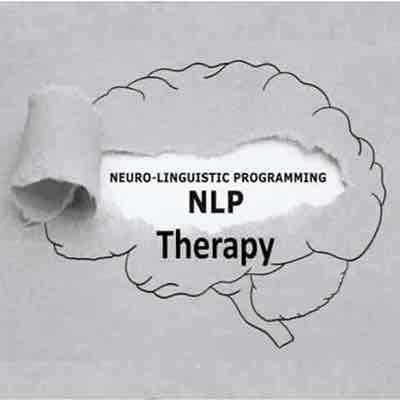O4
Neuro Linguistic Programming
REWIRE & TRANSFORM
What is NLP?
NLP therapy stands for “Neuro-Linguistic Programming” therapy, which is a form of psychotherapy that focuses on how language, thoughts, and behaviour are interconnected. It aims to help individuals identify and change negative patterns of thought and behaviour by using techniques such as reframing and refocusing to rewire the neural connections in the brain.
NLP therapists use techniques such as reframing negative thought patterns, anchoring positive emotions and teaching effective communication skills to help individuals achieve their desired outcomes. NLP therapy is often used to treat a variety of mental health issues such as anxiety, depression, phobias, and relationship problems.
It is a set of principles and techniques aimed at enhancing self-awareness, increasing confidence, building communication skills, and motivating positive social actions.
How does neuro-linguistic programming work?
Neuro-linguistic programming (NLP) works by tapping into the intricate link between our thoughts, language, and behavior.
It starts with the notion that our internal dialogue—the silent conversation we have with ourselves—is shaped by the words we choose and the images we create in our mind. By paying close attention to these mental patterns, you can identify habits that hold you back or drive you forward.
Once you become aware of these patterns, NLP techniques help you change them.
For example, anchoring (which we’ll discuss soon) involves pairing a specific gesture or phrase with a positive emotional state. Over time, this pairing allows you to trigger that state deliberately when you need it most. Similarly, reframing helps you look at challenges from a new angle, turning obstacles into opportunities by changing the context of your thoughts.
The process is interactive and hands-on. You learn to notice subtle cues in body language, tone, and word choice—not just in yourself, but in the people around you. This heightened awareness builds rapport and improves communication, making your interactions more effective and genuine.
Ultimately, NLP is about transforming the way you think and feel, giving you a practical toolkit to rewire your brain for better, faster results.
Common goals of NLP therapy include:
Enhanced self-awareness and transformation: NLP may provide insights into personal patterns by exploring perceptions, experiences, and reactions. This self-awareness can help individuals identify and rectify limiting beliefs, paving the way for personal transformation.
Acquisition of practical skills: NLP aims to equip individuals with tangible tools to navigate life's challenges, whether managing stress or improving interpersonal communication. For instance, professionals can learn anchoring techniques to bolster their confidence in public speaking.
Forward-focused growth: Unlike therapies that explore past traumas, NLP is more oriented toward the future. Clients are coached to visualize their goals, creating a sensory-rich mental image of their aspirations. This focus on a desired state can motivate individuals toward their envisioned future.
Achievement of personal aspirations: With a clear understanding of where they stand and where they wish to go, NLP clients might be poised to bridge the gap between the present moment and their future goals. As a result, clients are equipped with strategies that will help them progress closer to their desired outcomes.
By addressing these areas, NLP seeks to help individuals break away from inhibiting patterns and embrace their potential. Through a supportive, nonjudgmental environment, clients can unlock their untapped skills and capabilities, charting a course for lasting change.
REWIRE
TRANSFORM
&


